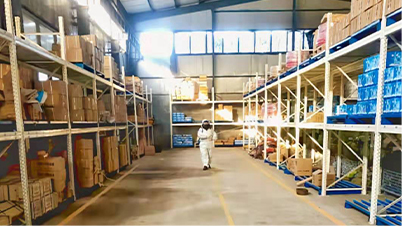Durable and Efficient Cargo Trolley Wheels for Smooth Transportation and Heavy Load Handling
The Importance of Cargo Trolley Wheels in Modern Logistics
In the fast-paced world of logistics and transportation, the efficiency of cargo handling is paramount. One of the most critical components in the effective movement of goods is the cargo trolley and its wheels. These seemingly simple elements play a crucial role in ensuring smooth operations in warehouses, distribution centers, and various other storage and transportation facilities. This article delves into the significance of cargo trolley wheels, their types, and their impact on modern logistics.
Understanding Cargo Trolleys
Cargo trolleys, often referred to as hand trucks, dollies, or carts, are designed to transport heavy loads with ease. They come in various forms, adapted for specific tasks, from moving boxes to transporting large machinery. The functionality of these trolleys heavily relies on their wheels, which provide the necessary mobility and support for transporting goods over different surfaces.
Types of Cargo Trolley Wheels
Cargo trolley wheels vary significantly in design, material, and functionality, each type suited for different environments and purposes.
1. Material Composition - Rubber Wheels Known for their shock-absorbing capabilities, rubber wheels are ideal for uneven surfaces. They offer excellent traction, making them suitable for both indoor and outdoor use. However, they may not be as durable when exposed to harsh chemicals. - Polyurethane Wheels These are hard-wearing and resistant to various chemicals and oils, making them suitable for industrial settings. They provide a smooth ride and are perfect for trolleys used in warehouses with concrete flooring. - Nylon Wheels Lightweight and durable, nylon wheels are ideal for moving trolleys across smooth surfaces. They are often used for lighter loads where maneuverability is crucial.
cargo trolley wheels

2. Design Features - Swivel Wheels These allow for greater maneuverability, enabling trolleys to navigate tight spaces with ease. Swivel wheels can be particularly advantageous in busy warehouses or crowded retail environments. - Fixed Wheels Fixed wheels offer stability and are generally used on one end of the trolley. This combination of fixed and swivel wheels provides a balance of control and mobility.
Impact on Efficiency and Safety
The right choice of cargo trolley wheels can greatly enhance operational efficiency. Smooth-rolling wheels reduce the effort needed to move heavy loads, minimizing strain on workers and leading to faster task completion. This efficiency translates directly to cost savings, as less time is spent on moving goods.
Moreover, safety is a critical consideration in logistics. High-quality wheels designed for the specific environment and usage can prevent accidents and injuries. For instance, rubber wheels with good traction can decrease the likelihood of slips and falls, especially in wet conditions. Furthermore, proper wheel selection can help in maintaining balance, reducing the risk of tipping over during transport.
Conclusion
In conclusion, cargo trolley wheels may seem like a minor detail in the vast world of logistics; however, they play a pivotal role in enhancing efficiency, safety, and overall performance in cargo handling. By understanding the various types of wheels and their applications, businesses can make informed choices that contribute to smoother operations and improved workforce safety. As logistics continues to evolve, the importance of optimizing every element, including the wheels of cargo trolleys, will remain paramount in achieving operational excellence.
-
Unlock Seamless Relocation with Our Heavy Equipment Moving ExpertiseNewsJun.06,2025
-
Unleash Unrivaled Flexibility with Our Adjustable Gantry CraneNewsJun.06,2025
-
Unleash Heavy-Duty Efficiency with Our Industrial Gantry Crane SolutionsNewsJun.06,2025
-
Revolutionize Steel Handling with Our Magnetic Lifter RangeNewsJun.06,2025
-
Master Equipment Mobility with Premium Machinery Mover SolutionsNewsJun.06,2025
-
Elevate Your Material Handling with Magnetic Lifter TechnologyNewsJun.06,2025
-
YS Permanent Lifting Magnets: The Smarter Way to Handle SteelNewsMay.22,2025
